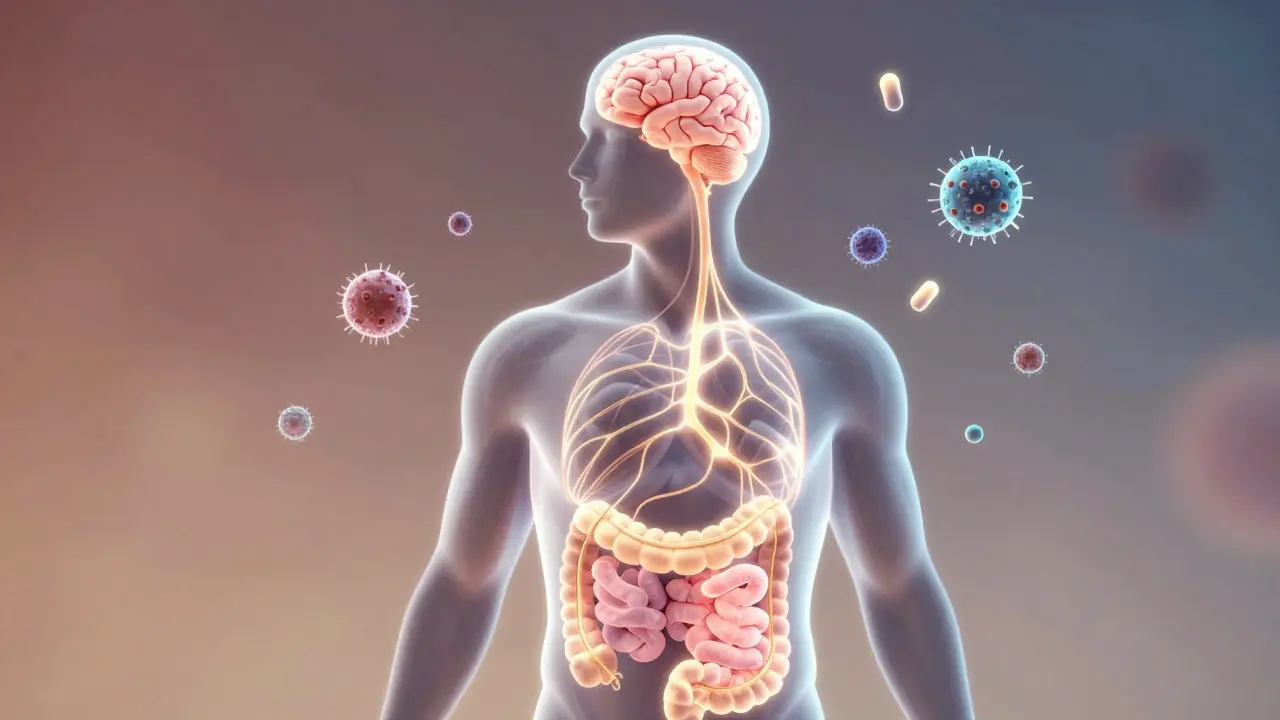Gut Health Essentials: Simple Tips to Keep Your Digestive System Happy
Ever felt bloated after a big meal or after a night of stress? That’s your gut sending a reminder that it needs a little extra care. Good gut health isn’t just about avoiding discomfort – it impacts energy, mood, and even skin. The good news? Small daily habits can make a big difference.
Food choices that feed good bacteria
The easiest way to boost gut health is to eat foods that love your microbiome. High‑fiber vegetables like broccoli, carrots, and leafy greens act like fuel for friendly bacteria. Swap white rice for whole grains such as quinoa or oats; they keep things moving and give microbes more to chew on. Fermented foods—yogurt, kefir, sauerkraut, kimchi—already contain live cultures, so they add a ready‑made boost.
If you’re looking for a snack that supports gut health, reach for a handful of nuts or a piece of fruit with the skin on. The skin holds extra fiber that feeds the microbes right where they live. Try to aim for at least 30 grams of fiber a day; you’ll notice less heaviness and more regularity.
Probiotic supplements that actually work
Sometimes diet alone isn’t enough, especially after antibiotics or a stressful period. That’s where probiotic supplements step in. One standout is Bacillus coagulans, a spore‑forming probiotic that survives stomach acid and reaches the intestine alive. Research shows it can improve digestion and support immune function. A typical dose is 1‑2 billion CFUs taken with a meal, but start low and see how you feel.
Another gut‑friendly option is Samphire supplement. This sea vegetable is rich in iodine and electrolytes, and some users report smoother digestion and reduced gas. The supplement usually comes in powder form; mix a teaspoon into water or a smoothie after a meal. As with any supplement, check the label for third‑party testing and talk to a clinician if you’re pregnant or have health conditions.
Remember, probiotics work best when paired with pre‑biotic foods (the fiber that feeds them). Think of a probiotic capsule as adding new residents to a city, while fiber is the public transport that helps them settle.
Beyond food and pills, lifestyle habits matter. Regular movement—like a 20‑minute walk after dinner—helps keep the gut muscles active and reduces constipation. Stress hormones can upset the microbiome, so simple breathing exercises or short meditation sessions can protect gut health as much as a probiotic.
Hydration is another underrated factor. Water helps dissolve nutrients and moves waste through the colon. Aim for at least eight glasses a day, and consider a splash of lemon for a gentle alkaline boost.
Finally, be cautious with unnecessary antibiotics. They wipe out both bad and good bacteria, often leaving a gut imbalance that takes weeks to recover. If you must take them, follow up with a gut‑supporting plan that includes the foods and supplements mentioned above.
Putting these pieces together—fiber‑rich meals, fermented foods, targeted probiotics like Bacillus coagulans, occasional Samphire powder, movement, stress control, and good hydration—creates a solid foundation for gut health. Your digestive system will thank you with smoother mornings, steadier energy, and a clearer mind. Start with one habit today, and watch the change roll in.

Irritable Bowel Syndrome: Understanding the Gut-Brain Axis for Real Symptom Relief
Irritable Bowel Syndrome isn't just a digestive issue-it's a breakdown in communication between your gut and brain. Learn how the gut-brain axis drives symptoms and what evidence-based treatments actually work for lasting relief.
More Detail
How a Balanced Diet Stops Acute Diarrhea Before It Starts
Discover why a balanced diet is key to preventing acute diarrhea, learn essential nutrients, gut‑friendly foods, and practical steps for lasting gut health.
More Detail